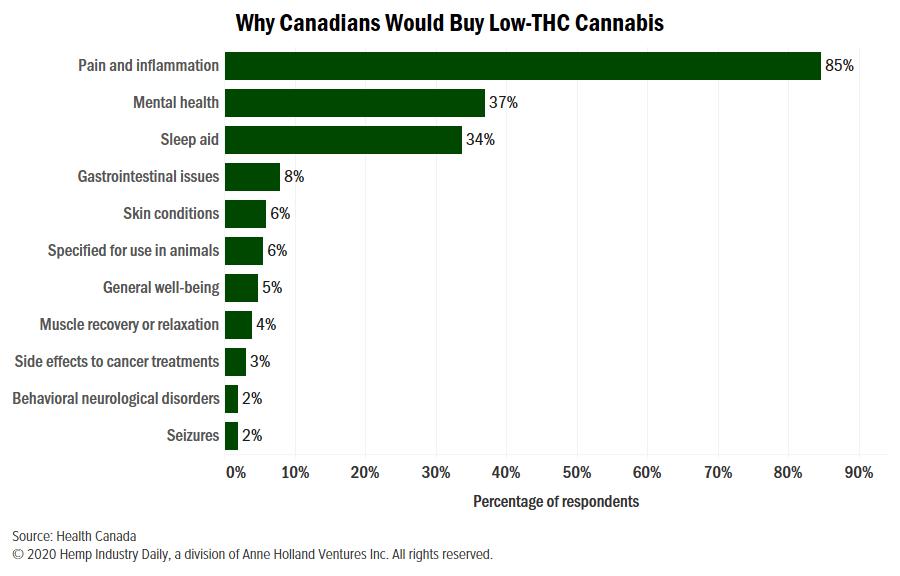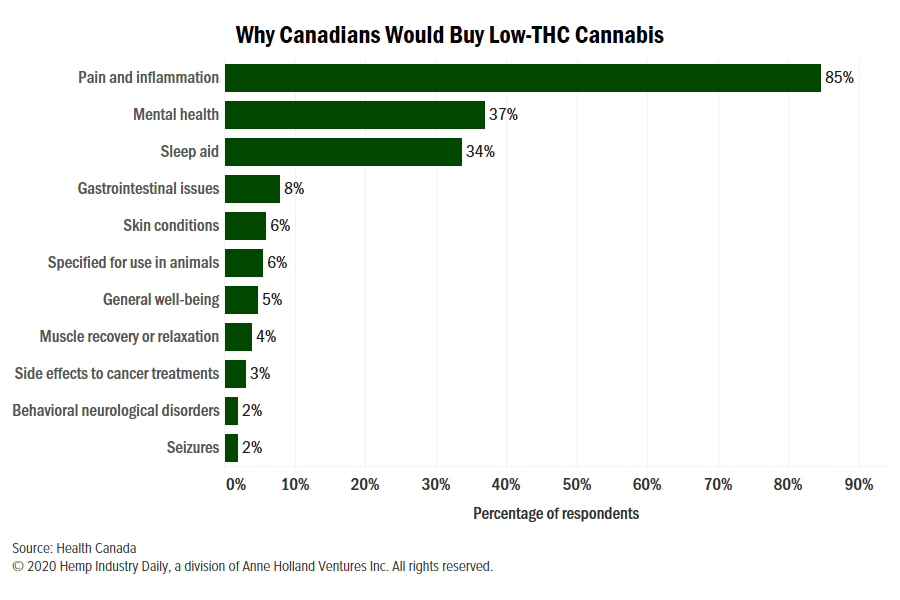Canadian health authorities say there’s strong demand for over-the-counter, low-THC cannabis such as CBD, and most people want to use it for pain and inflammation if the country were to establish a legal market.
That’s the result of a recent Health Canada survey. The agency is considering new rules about the sale of CBD and other “cannabis health products” and invited the public to take a survey to gauge interest in over-the-counter cannabinoid products.
Canada currently allows CBD and other cannabinoid products to be sold only through provincially licensed adult-use marijuana retailers.
If the new rules are approved, provinces and territories would have the ability to authorize where cannabis health products could be sold, potentially including pharmacies, veterinary clinics and pet stores.
The government says that the survey, held online between June and September, along with external scientific advice, is supposed to “inform the next steps on a potential regulatory path forward.”
The 1,104 survey responses included representatives from the cannabis industry and health and veterinary associations, but consumers made up the majority with 684 respondents.
Of those, 579 expressed interest in using cannabis health products for “issues related to pain and inflammation, such as joint or back pain, arthritis, migraines, or headaches.”
Most of the people who completed the survey chose more than one area of interest for low-THC cannabis products. Stress, anxiety and depression were also cited as reasons by a large portion of the respondents (253). Trouble sleeping was another popular choice.
“Overall, online consultation feedback from consumers indicated they believe there is a strong demand for (cannabis health products), as cannabis is perceived to be an effective, natural and low-risk alternative to pharmaceutical drugs currently on the market,” the report said.
One of the goals of the survey was to find out the “kinds of products they would be interested in if such products were made legally available in Canada.”
Most of the respondents (414) were interested in products that could be taken orally, such as extracts, tinctures, oil, or capsules.
“Canadians are interested in the potential therapeutic uses of cannabis for purposes such as pain relief for human and animal use, without the need for practitioner oversight,” the report concluded.
There is no deadline for Health Canada to make a decision on allowing over-the-counter low-THC “cannabis health products.”



